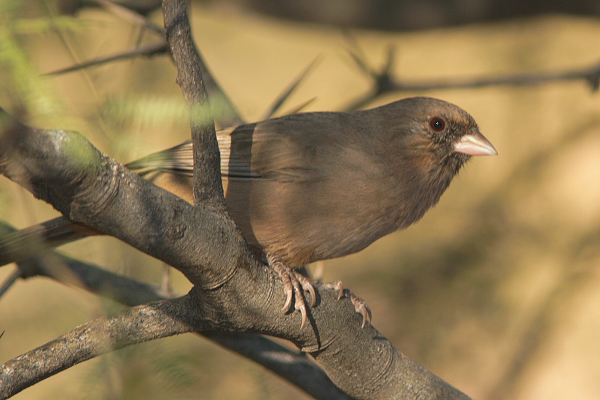
Location: Arizona
Date: 2005-10-02
Lens: Canon 300mm IS F4 + 1.4x II Converter

 Abert's Towhee
Pipilo aberti
Abert's Towhee
Pipilo aberti
 Description
DescriptionThe Abert's Towhee was named by Spencer Baird in 1852 for Lt. James William Abert, who obtained the first specimen. The Abert's Towhee forages for insects and seeds by scratching on the ground. It is known, however, to sometimes probe low on tree trunks for insects.
Grayish-brown upperparts. Buffy underparts. Black facial area surrounds pale conical bill. Dark eye. Rusty undertail coverts. Long tail. Juvenile (Spring to Fall) lightly spotted below. Sexes similar. 8 to 9 inches in length.
Desert thickets (especially mesquite and cottonwood-willow), farms, orchards, and urban areas.
 Nesting
Nesting3-4 pale blue-green eggs with markings concentrated at the large end. The eggs have a ? day incubation period. Fledging occurs in 12-13 days. The nest is a large open cup made from leaves, bark, and weed stems, and is built close to the ground in a bush or tree. Nesting pairs generally stay bonded for life.